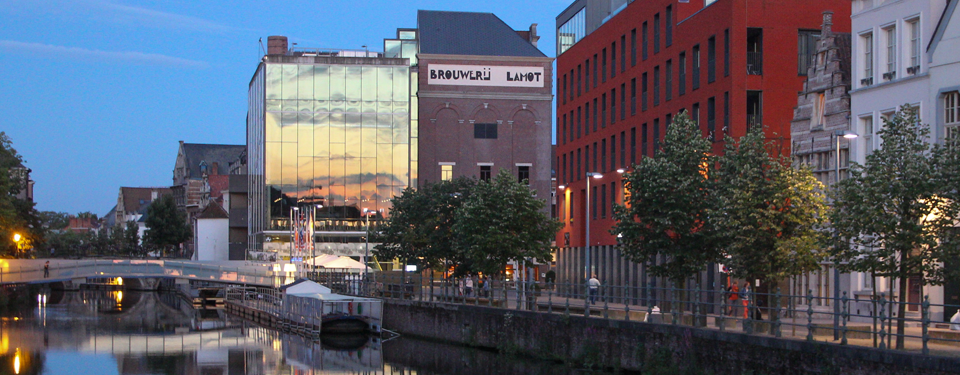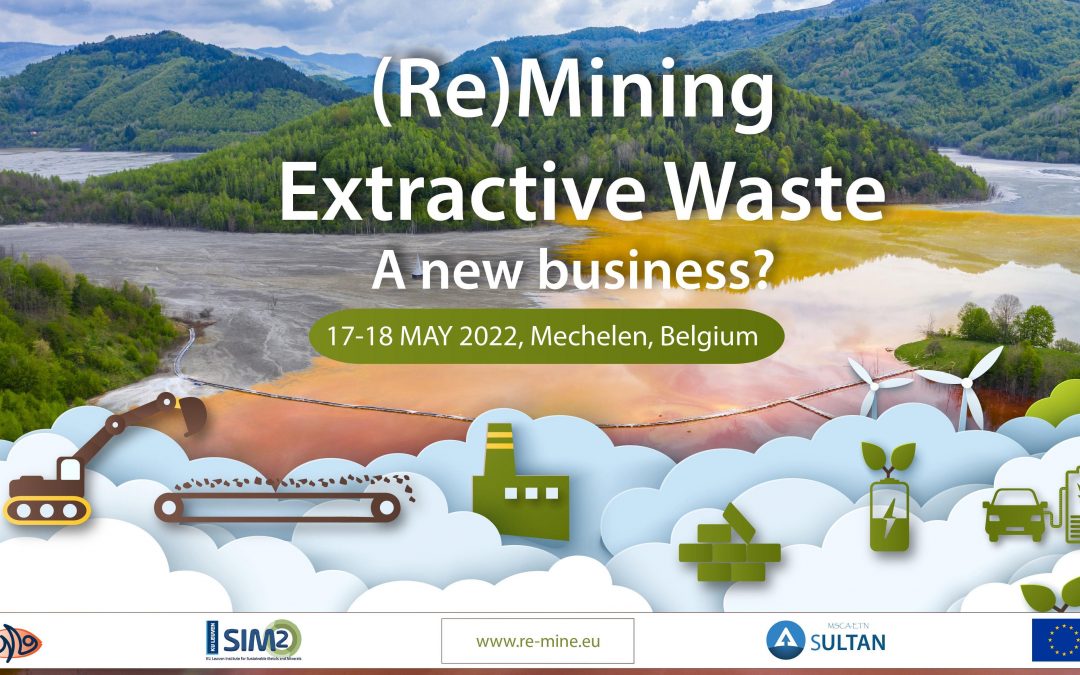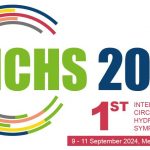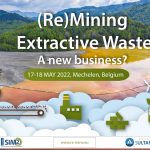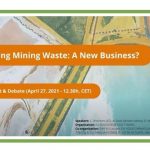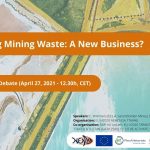The 2-day symposium “(Re)Mining extractive waste, a new business?” (May 17-18, 2022, Mechelen-Belgium) gathers leading experts in the field of mining and/or remining of extractive waste, with a focus on the tailings that arise during the mining and processing of sulphidic ores. The latest evolutions in the field, novel concepts and business cases will be presented, including case studies from both historical and active mining sites.
Why this Symposium?
Since the earliest days of the Industrial Revolution, the primary mining and metal processing industry has been landfilling and/or stockpiling vast quantities of waste. This waste type, termed “extractive waste”, is considered as one of the largest waste streams in Europe. Specific precautions need to be taken when dealing with sulphidic mine tailings, as upon oxidation of residual sulphides, acidic waters are generated. These can result in the release of residual heavy metals to surface and ground waters. Especially in the case of historical mining sites, pre-dating the EU Extractive Waste Directive, this can cause problems, as these sites in general lack the required environmental protection.
Given the ambition to move towards a more circular economy the question arises if the extractive waste problem cannot be transformed into a resource recovery opportunity. Put differently, can the (re)mining of extractive waste become a new business? That was also the question that was addressed in the a previous (on-line) “NEMO Lunch Event & Debate” (April 2021). During this gathering three experts – Christian Wimmer (EC DG Environment, Anders Sand (Boliden), Dirk Musser (Cronimet) – shared their views on the barriers and opportunities for remining extractive waste. The event led to five Lessons Learned:
- Lesson #1. Remining of extractive waste is not a new business
- Lesson #2. Remining of European mining waste has significant potential
- Lesson #3. Remining becomes more treacherous for remote sites
- Lesson #4. A broader adoption of remining extractive waste will require some form of subsidy
- Lesson #5. A broader adoption of remining extractive waste will require a dedicated regulatory framework
Symposium information
These five Lessons Learned will form the backbone of the May 2022 Symposium “(Re)Mining extractive waste, a new business?”, during which they can be discussed in significantly more detail.
The target public comprises industry, academia, policy makers and civil society. Speakers will contribute to four sessions: mapping, resource estimation & geometallurgy; metal and mineral recovery; bulk mineral matrix valorisation; multi-criteria assessment, policy and Social License to Operate (SLO). Oral presentations/poster sessions are combined with workshops and roundtables on Life-Cycle Assessment (LCA) and SLO aspects of (re)mining extractive waste. There will be ample networking opportunities. Participation is free of charge (although a no-show fee will be implemented).
Registrations for the conference are now open. You can register here: https://re-mine.eu/registration/
Would you like to contribute to the symposium with an oral presentation or poster? Please submit a short abstract describing your contribution here: https://re-mine.eu/abstract-submission/
Venue – Lamot Conference Centre, Mechelen, Belgium. http://lamot-mechelen.be/en/ – Accessible by train: direct connection from Brussels airport (11 minutes travel time).
Organisers and acknowledgements
The symposium is organised by the Horizon2020 NEMO (https://h2020-nemo.eu/) and SULTAN projects (https://etn-sultan.eu/) in collaboration with the KU Leuven Institute for Sustainable Metals and Minerals (SIM²) (https://kuleuven.sim2.be/). The NEMO and SULTAN projects have received funding from the European Union's EU Framework Programme for Research and Innovation Horizon 2020 under Grant Agreement No 776846 and No 812580.
Website: ReMining | A New Business (re-mine.eu)
Contact: Practical: Rabab.nasser@kuleuven.be; Programme: Lieven.machiels@kuleuven.be
